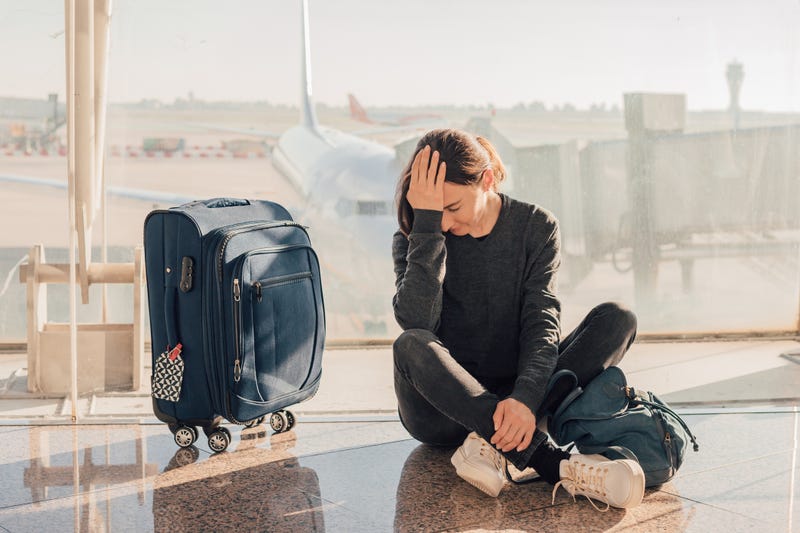
One in three people have either fallen victim or know someone who has fallen victim to a travel-related scam, according to recently released research.
According to a press release from online protection service company McAfee Corp., 7,000 people from seven countries were surveyed for the “Safer Summer Holidays” travel report.
“The research reveals 30% of adults have fallen victim or know someone who has fallen victim to an online scam while trying to save money when booking travel,” it said. Additionally, “34% of those who had money stolen have lost over $1,000 before their trip has even begun, while 66% lost up to $1,000.”
High inflation, high interest rates and what McAfee referred to as a “cost-of-living crisis” are all expected to impact travel habits this summer. As people search for deals on their vacations, they are more likely than ever to fall for a scam, research suggests.
“With 94% of people booking travel online this year, it can be easy to get lured into a deal that’s too good to be true,” said the press release. “In today’s economic environment, adults are more likely to seek out a bargain deal online (56%), move quickly to snap up a deal (45%), try a new booking site (35%) and even a new destination (36%), in order to save money.”
Indeed, the Federal Trade Commission has warned that travel scams can begin even before consumers step out of their homes.
“You may get a call, a text message, or a flyer in the mail,” said the FTC. “Or maybe you'll see an online ad promising free or low-cost vacations. Scammers and dishonest companies are often behind these offers. You may end up paying hidden fees – or worse: after you pay, you might find out it’s all a scam.”
Research indicates that 14% of all adults have been tricked into making payments through fraudulent platforms and 18% have had their identity stolen when booking online. Fortunately, just 7% of this group entered passport information and 11% provided other personally identifiable information to a fake website.
Most people surveyed by McAfee (61%) said they were more concerned about digital travel scam threats than physical ones, including pickpocketing. In particular, 85% of adults had high concern around their identity being compromised when making travel plans.
However, “48% admitted to being less security conscious when on holiday,” per the press release. Some of the ways that people said they became lax while on vacation include: connecting to Wi-Fi networks even though they look a bit suspicious (22%), using a free USB charging port at an airport or train station (26%), or leaving their Netflix account logged in after checking out of their accommodation (17%). Les than half (43%) use of any services to monitor the safety of their online identity.
“People are often more relaxed and carefree when away from home, but it’s never been more important to remain vigilant when traveling,” explained Cagla Ruacan, McAfee’s Head of Product Strategy and Insights. “From the moment you open your laptop to book a vacation, to when you log into airport Wi-Fi while waiting for the flight home, staying alert and taking precautions helps keep yourself and your loved ones safe from online travel scams.”
Here are some tips McAfee offered to travelers to help prevent scams from ruining their rest and relaxation:
· Be vigilant about what deals you click on – they could be malware
· Be cautious when connecting to Wi-Fi and use a virtual private network to keep your internet connection secure while you travel
· Verify the details of your accommodations on other multiple sites before you confirm, and make sure you can find the owner of private rentals in public records
· Don’t pay for rentals by wire transfer prepaid cards, gift cards or types of payment that cannot be reversed


